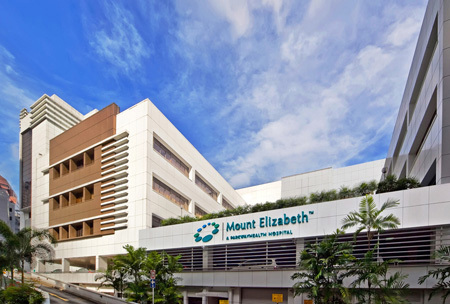
Dr Dennis T H Lim
Head and Neck General SurgeonMBBS, M.Med (Surg), FRCS (Edin), FRCS (Glas), FAMS
Parathyroid surgery involves the removal of one or more parathyroid glands, most commonly to treat hyperparathyroidism or other related conditions. In most cases, patients are able to return home the same day, with detailed post-surgery guidelines provided to support a smooth recovery at home.
Although the procedure is usually minimally invasive, knowing what to expect before, during and after surgery can help you feel more prepared and at ease. Keep reading to find out what you can expect at each stage of parathyroid surgery, from preparation to recovery.
Healing after parathyroid surgery takes time, and following your at-home care plan can make the process more manageable. Below are some key areas you should focus on.
Looking after your incision is important for preventing infection and supporting proper healing. Keep the area dry for the first 48 hours. Once your surgeon gives the go-ahead, you may gently wash with mild soap and water. Most people are cleared to shower within 24 to 48 hours, but it’s best to avoid soaking the wound in baths, pools, or steam rooms for about a week to 10 days.
In the first week or two, avoid heavy lifting and strenuous activity that may strain your neck. Light walking is encouraged, as it helps circulation without putting stress on your body. Sleep in a position that feels comfortable and supports your neck. As you regain strength, you may gradually return to work or school, but check with your surgeon before restarting exercise or more physically demanding routines.
To protect your voice and ease any swallowing discomfort, try to limit talking, singing or shouting during the first few days after surgery. If needed, your surgeon may recommend speech therapy or gentle swallowing exercises to support your recovery and help restore normal function.
Start with soft foods while your throat heals, then gradually return to your regular diet as swallowing becomes easier. Drink plenty of fluids to stay hydrated, which supports overall recovery. Avoid alcohol and smoking during this period, as both can slow down the healing process.
Your doctor may prescribe calcium or vitamin D supplements to help stabilise your levels after surgery. Take as directed, and be alert for signs of low calcium such as tingling, numbness, or muscle cramps. For pain relief, paracetamol or other mild medications are usually sufficient, but avoid NSAIDs unless specifically approved by your doctor.
As your recovery progresses, you can expect several healing milestones. Light activities can usually be resumed after about one week, with most swelling resolving during this time. By two to four weeks, many patients are able to return to regular work, while full recovery and scar fading typically occur after six weeks or more.
During this period, blood tests to monitor calcium and hormone levels are often scheduled at one- to two-week intervals. These check-ups help your doctor ensure that your healing is on track and allow for timely adjustments to your care plan if needed.
In the first few days and weeks after parathyroid surgery, it is common to notice temporary changes as your body heals. These symptoms usually improve on their own as recovery progresses:
Most recovery experiences are mild, but certain signs may indicate complications and require urgent medical care. Contact your surgeon promptly if you develop any of the following:
If you notice any of these symptoms, contact your surgical oncologist right away to ensure prompt evaluation and treatment.
For questions or concerns about your recovery or to learn more about parathyroid surgery, reach out to our clinic to schedule a consultation. Our team is here to provide guidance and support at every stage of your healing journey.
Many people return to normal activities within four to six weeks, though mild neck tightness or tiredness may last a little longer.
It is common to notice some hoarseness or changes in your voice after surgery, but these usually improve within six weeks to six months. Permanent voice changes are uncommon.
In most cases, further surgery is not needed. Additional procedures are only considered if not all affected glands were removed or if complications occur.
Your incision usually heals into a thin, faint line over time and often becomes barely noticeable after several months.
Many patients only require supplements, such as calcium or vitamin D, for a short period. Lifelong medication is uncommon unless there are ongoing underlying conditions.
Head and Neck General SurgeonMBBS, M.Med (Surg), FRCS (Edin), FRCS (Glas), FAMS
Dr Dennis T H Lim is a specialist in head and neck surgical oncology, with expertise in cancers of the thyroid, parotid gland, head and neck, and melanoma. Trained at the Memorial Sloan-Kettering Cancer Center, New York, Dr Lim previously served as Senior Consultant Surgical Oncologist at the National Cancer Centre and Singapore General Hospital. He now runs a private practice, providing personalised, multidisciplinary care using advanced surgical techniques to optimise outcomes for patients with head and neck cancers.

Need clarity and guidance for cancer care?
Please reach out to us.
